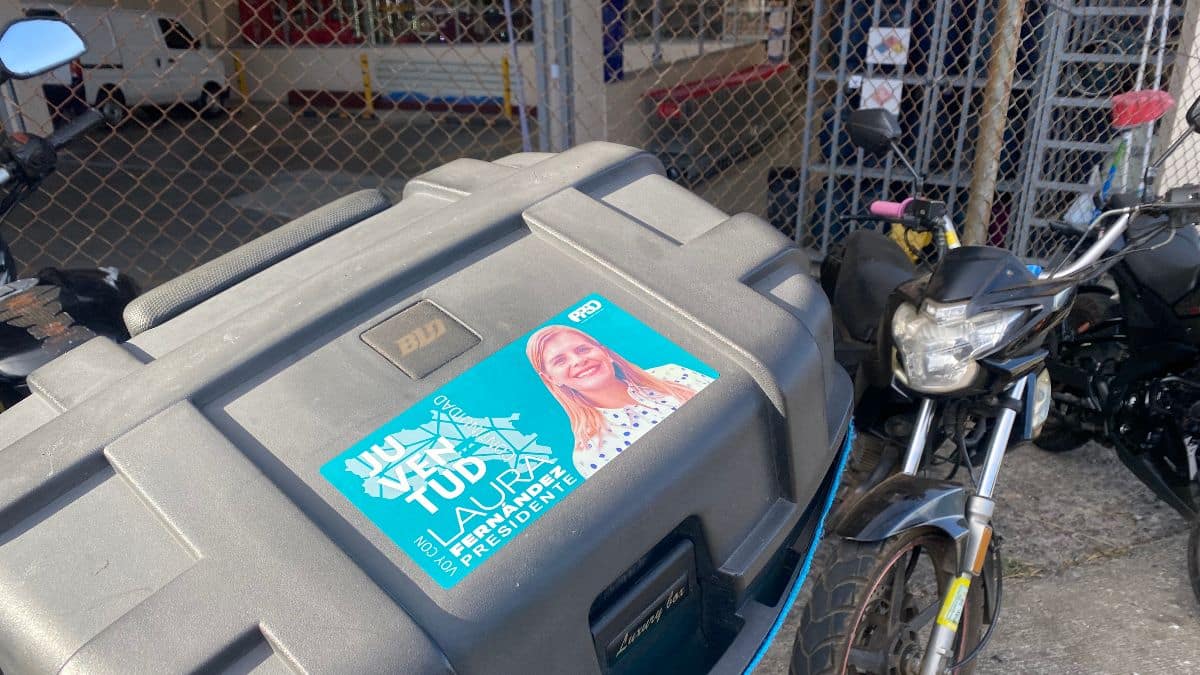Thinking about remote work in Costa Rica? This article breaks down the professional and practical reasons why Costa Rica is more than just a pretty backdrop for digital nomads.
Oftentimes in the world of remote work and digital-nomading, the school of thought is to keep moving. Spend a few weeks here, maybe a month or two there. Exploring the world while earning online as long as you have a decent wifi connection and a laptop. But what happens when you want to settle somewhere? When you tire of the nomad lifestyle but still want to live abroad for at least a year or two or more and still work remote? Well, you need to find the right place to do that.
In this article, we outline some of our favorite reasons why Costa Rica works as a destination for remote workers to, well, work in for the long term. Why it’s a place to really get things done. We live in Costa Rica so can tell you all about the lifestyle and the pura vida and work-life balance. Why year-round warm weather and weekends spent hiking or surfing can be great for your overall wellbeing and productivity. All that stuff is real and valid and good. But what about on a practical level? What does Costa Rica bring to the table professionally as a remote work destination? Here are some great advantages to consider:
1. Reliable Digital and Physical Infrastructure
For remote work to succeed, reliable infrastructure is critical. Costa Rica delivers strong internet access and dependable utilities, particularly in the Central Valley and most tourist areas. These areas have fiber-optic networks that provide speeds up to 1,000 mbps, more than enough for video calls, cloud work, and large file transfers. And while Costa Rican internet might not be quite as fast overall as neighboring Panama’s, for example, it’s pretty close nowadays.
For remote workers in more out-of-the-way areas, Starlink and other satellite internet services are easy to set up. Utilities are also a lot more dependable in Costa Rica than they used to be, and many co-working spaces have backup power and modern business amenities, ensuring continuity for remote professionals.
2. Workspace Flexibility
If you’re into coworking spaces, Costa Rica has a setup for you. In the Central Valley and popular beach communities like Jacó and Tamarindo, you’ll find coworking spots with fast internet, AC, coffee, and a decent community of remote workers. These places offer good short- and long-term packages and are usually in walkable areas near restaurants and amenities.
For those who want something more professional or private, renting dedicated office space is a viable option. In the Central Valley especially, there’s a wide range of commercial real estate available, from basic small offices to full suites in modern business parks. It’s even been known for professionals to use a storage unit as an office. Creativity when creating workspaces is a good thing!
Rental prices are reasonable compared to North America, and leases often come flexible. This makes it possible to set up a more permanent base of operations without the overhead you’d face in the U.S. or Europe.
2. Time Zone Alignment With North America
Costa Rica’s time zone offers a great advantage for remote workers collaborating with clients, teams, or companies in the United States and Canada. The country operates on Central Standard Time year-round, which closely matches North American business hours without the complications of daylight saving time changes.
This alignment allows for real-time communication during regular working hours, making meetings, calls, and collaborative projects easier to schedule. Remote workers can maintain a consistent routine that aligns with their colleagues’ and clients’ schedules, avoiding late nights or early mornings that are often required when working from other parts of the world. And even if you’re dealing with Europe, no problem. It’s perfectly possible to arrange calls and communications with London, Frankfurt, or Madrid during traditional work hours for both parties.
3. Workspace Flexibility
If you’re into coworking spaces, Costa Rica has a setup for you. In the Central Valley and popular beach communities like Jacó and Tamarindo, you’ll find coworking spots with fast internet, AC, coffee, and a decent community of remote workers. These places offer good short- and long-term packages and are usually in walkable areas near restaurants and amenities.
For those who want something more professional or private, renting dedicated office space is a viable option. In the Central Valley especially, there’s a wide range of commercial real estate available, from basic small offices to full suites in modern business parks. It’s even been known for professionals to use a storage unit as an office. Creativity when creating workspaces is a good thing!
Rental prices are reasonable compared to North America, and leases often come flexible. This makes it possible to set up a more permanent base of operations without the overhead you’d face in the U.S. or Europe.
🇨🇷 Moving to Costa Rica? Stop scrolling through conflicting advice. We compiled the 50 most-asked expat questions into one guide. Real answers, no sugar-coating. From visas to vet bills, we cover it all.https://t.co/osIiytZsGd
— Central America Living (@VidaAmerica) July 2, 2025
4. Territorial Tax System
Costa Rica operates under a territorial tax system, which is a major plus for remote workers. In simple terms, only income earned from within Costa Rica is subject to local tax. If you’re working for a company or clients based outside the country (which most remote workers are) your income isn’t taxable here.
This system stands in contrast to other countries where tax rules around foreign-earned income are vague or inconsistently applied. Costa Rica has maintained a straightforward approach: if you don’t make your money in Costa Rica, they leave it alone. That gives remote workers the confidence to focus on their job without having to constantly second-guess their tax situation.
It’s worth noting here that you may still be liable for taxes in your home country. For example, U.S. citizens are taxed on worldwide income no matter where they live. That obligation is between you and Uncle Sam (or your home country, if not the States), not Costa Rica. But on the Costa Rican side, the rules are simple and clear.
5. Access to Skilled Talent and Professional Services
Costa Rica has a well-educated, largely bilingual workforce specializing in areas that include tech, engineering, customer service, and business administration. This talent pool is accessible to remote professionals who need local support for outsourcing, staffing, or project collaboration.
There’s also a solid ecosystem of professional services tailored for expats. English-speaking accountants, lawyers, notaries, and technical consultants are available to assist with business setups, legal matters, hiring, real estate, and more.
Having access to skilled local talent and reliable professional services reduces barriers and increases efficiency. It means remote workers can expand operations, delegate tasks, or find expert advice without leaving the country or struggling with language and cultural gaps.
6. Active Expat and Remote Work Community
When it comes to living abroad, the most important thing you should do is step out of the expat bubble, learn the language, and assimilate. We’ve been in Costa Rica a long time and that advice stands here exactly the same as anywhere else. But when it comes to work and our professional lives, it’s great to meet likeminded souls and network a little. Costa Rica has a strong expat and remote work community, which can be a major asset for newbies.
Connecting with expat peers helps remote workers find resources, get advice from those who’ve been around longer, and even discover new business partnerships. This active community also contributes to a culture where remote work is normalized and supported. Instead of feeling isolated or disconnected, remote workers in Costa Rica can tap into a professional network that enhances their experience and success. But again, don’t do this at the expense of making local, Costa Rican connections and learning Spanish.
7. Financial Infrastructure for Remote Professionals
Banking and financial management is often a challenge for remote workers abroad, but Costa Rica has the essential infrastructure in place. While some bureaucracy exists, remote professionals can access international wire transfers, online banking, and popular payment platforms such as PayPal, Wise, and Payoneer.
Opening a local bank account is difficult without some form of legal residency, although not impossible. Most banks require a DIMEX card or proof of a valid residency status, meaning tourists and short-term nomads typically need to rely on foreign accounts and cards, which is fine for many remote workers in Costa Rica. However, with the digital nomad visa or another type of residency, setting up a local account becomes possible and makes things like paying bills easier.
Costa Rica also has a small but growing crypto presence. While crypto isn’t accepted everywhere for everyday purchases, many freelancers and entrepreneurs use digital wallets to move money or receive international payments. The Central Bank doesn’t regulate crypto, but it allows its use at your own risk.
Although not perfect, Costa Rica’s financial systems support freelancers, remote employees, and business owners effectively. It’s easy to access your money and make payments for whatever you need while in Costa Rica.
8. Global Connectivity and Travel Access
Costa Rica’s two international airports, Juan Santamaría International Airport (SJO) near San José and Guanacaste International Airport (LIR) in Liberia, provide excellent connectivity. Direct flights connect to major U.S. cities such as Miami, Houston, New York, Los Angeles, and Atlanta, as well as Europe, Canada, and other Latin American destinations.
This travel access is important for remote professionals who need to visit clients, attend conferences, or maintain personal ties abroad. Frequent and relatively affordable flights reduce the feeling of isolation and make Costa Rica a convenient hub. Good regional and international connectivity also benefits companies with distributed teams or clients in multiple countries. It supports mobility and flexibility, essential components for many remote work lifestyles.
9. Housing and Rentals Adapted to Remote Work
If you prefer working from home, most furnished rentals in Costa Rica come with the basics you’ll need and it’s easy to set up your own home office. You might even be lucky enough to have a home office with rainforest and ocean views! As mentioned earlier, fiber optic internet is becoming more widespread, so it’s increasingly easy to get strong, stable service in a residential setup. Landlords in Costa Rica, particularly in the San José area and popular beach communities, increasingly recognize the requirements of remote workers. After all, plenty of Costa Ricans work from home, too. It’s no longer the oddity that it used to be, making it easier for everyone.
Wrapping Up
We already said we were focusing on purely professional reasons to work remotely in Costa Rica, and these are some of the best ones. We could also have spoken about how Costa Rica is one of only two countries in Central America with a specific remote work visa or how tourists can stay up to 180 days at a time, making a “try-before-you-commit” situation so much easier in terms of seeking residency. And then there’s the political stability that leads to more stable business environment.
Sure, there are drawbacks to Costa Rica, including a high cost of living, gentrification concerns, and bureaucracy issues, but for the average remote worker, the positives outweigh the negatives. And we haven’t even began to talk about work-life balance and all that happy stuff.
At the end of the day, if you’re looking for a place that lets you work effectively without sacrificing too much in the way of infrastructure or professionalism, Costa Rica deserves a serious look. Remote work in Costa Rica isn’t just about beaches and jungle access, although those definitely help. It’s also a country where you can actually get things done.



